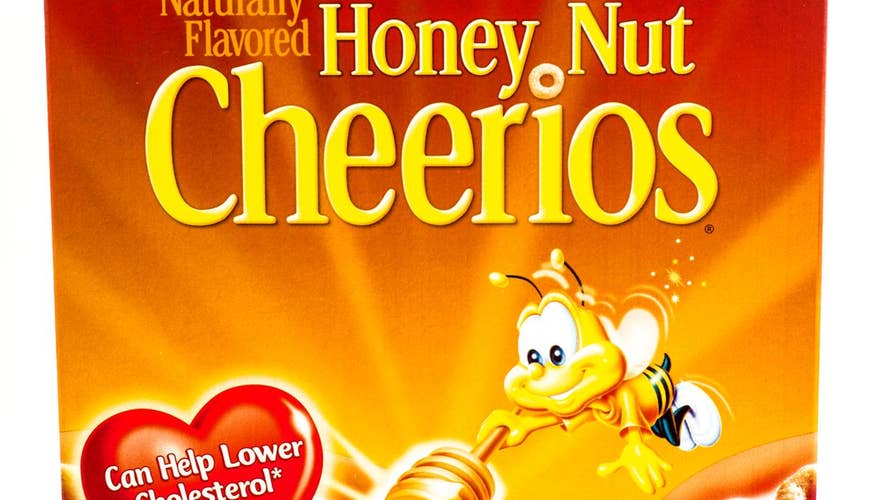Cheerios removes 'Buzz the Bee' from Honey Nut Cheerios box
In an effort to raise awareness of the dwindling US bee population, General Mills cereal Cheerios removes longtime mascot 'Buzz the Bee' from the Honey Nut Cheerios box
Environmentalists are buzzing about a new campaign started by General Mills to promote awareness surrounding the world's declining bee population.
Last week, the cereal giant removed Honey Nut Cheerios’ mascot—Buzz Bee—from cereal boxes. In addition, the company also mailed out free flower seeds as part of its “Save the Bees” campaign.
That campaign, General Mills claimed, would provide additional nectar for the pollinating insects. And within just a week, the cereal company had already distributed 1.5 billion packets of seeds-- ten times more than the original goal.
Planting flowers might sound like a beautiful, and environmentally friendly activity but the problem with all of this, according to Lifehacker, is that the seeds sent out by the cereal giant may actually damage some recipients’ local ecosystems.
7 SURPRISING FACTS ABOUT YOUR FAVORITE CEREAL
Instead of shipping native flower species to specific locations, General Mills utilized a basic mix of hyssops, lavender, daisies, poppies, forget-me-nots and others. But some of those flowers aren’t native to America. And others are actually banned.
"No plant is inherently ‘bad’, but many species can and have caused a great deal of damage when they are introduced into locations outside of their native range," ecologist Kathryn Turner told Lifehacker.
"Invasive species can out-compete the natives they encounter, they can take up all the space and use up all the resources, they can spread disease, and cause other physical changes to their new homes, all of which can have detrimental effects on native species, and on humans."
Poppies, for instance, are regarded as an “invasive exotic pest” in the southeast. If planted in the wrong region, environmentalists say the flowers could both compromise available space and resources and even potentially spread disease.
But the cereal maker, which worked with seed purveyor Veseys Seeds and their experts to create the Bee Feed Wildflower mix, has battled back against the accusations, arguing that the flower mix sent out does not possess a risk to local ecosystems.
“According to Veseys Seeds, the Bee Feed Wildflower mix is composed of 20 annuals and perennials that will bloom all season long. It has been field-tested and is known to attract honey bees, bumble bees, and other native bees such as mining bees, leaf cutter bees, sweet bees and long-horned bees," a spokeswoman speaking on behalf of General Mills told Fox News.
"The flower varieties within the Bee Feed Mixture were selected for their flowers which produce nectar and pollen that are attractive to bees and other pollinators."
The spokeswoman continued, "The seed varieties in the mix [comprised of mixture contains annuals, biennials, and perennials] are not considered invasive."
FOLLOW US ON FACEBOOK FOR MORE FOX LIFESTYLE NEWS
According to General Mills, its "Save the Bees" campaign is just “one part of a larger, multi-year, corporate commitment to support pollinator conservation." The company says it has invested over $4 million over the past six years with the Xerces Society, to support pollinator and biodiversity efforts across General Mills' own supply chain. That includes projects farms supplying ingredients to brands like Cheerios, Muir Glen, Cascadian Farm, LÄRABAR and Annie’s.
According to brand channel, bees play a crucial part in pollinating 35 percent of the world’s food supply. But the insects – one species of which has already been declared endangered by the US Fish and Wildlife Service – are dying off due to habitat loss, parasites and pesticides.





















